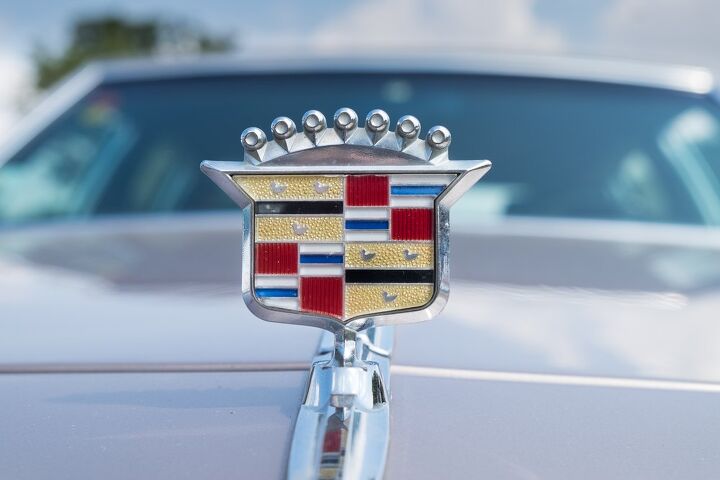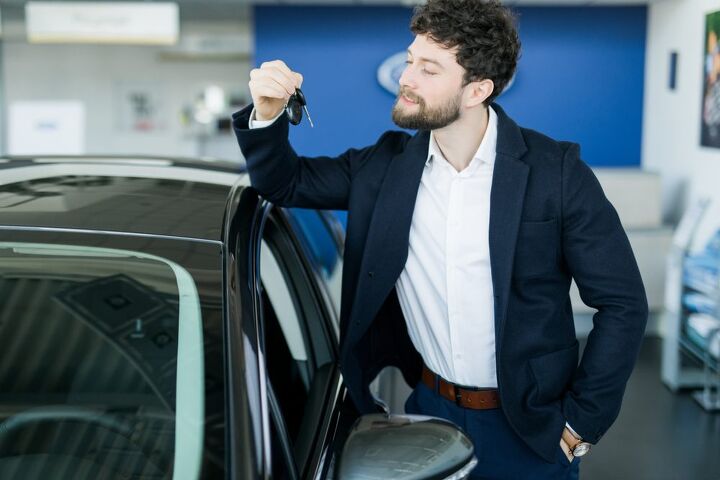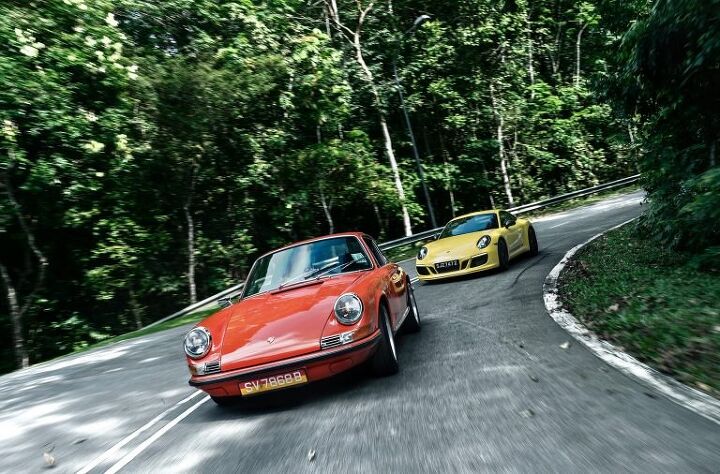#AutoDealer
Auto Dealers Report 2021 Profits Will Break Previous Record
With so many articles discussing how poor automotive sales have been through 2021, one could be forgiven for thinking this was going to be a hard year for anybody owning a dealership. However, the reality of the matter is that it’s a seller’s market and those who can sell are making a killing off everyone else’s misery.
The National Automobile Dealers Association (NADA) has reported that the ongoing deficit of product has helped the average store rake in more money than they did in 2020, breaking the previous twelve-month profitability record. Today’s average dealership is reporting a net pretax profit of about $3.38 million through October for 2021. That’s more than twice what was tallied within the same timeframe last year and really goes to show how much money can be made when the customer’s needs are the only items being discounted.
Cadillac Expects to Lose One-Third of All U.S. Dealerships This Year
Cadillac is expected to have lost one-third of its U.S. dealerships this year — going from nearly 900 physical locations at the start of 2021 to an estimated 560 by year’s end.
But there’s allegedly no need to worry about the brand because this is part of a planned electric offensive. Last year, Cadillac asked dealers to spend the capital necessary to install charging stations, update their service centers, and retrain staff to better tackle EVs or take a buyout before the automaker’s first battery-driven car (the Lyric crossover) hits the market early in 2022. It would seem that a meaningful portion of the whole decided to bow out, which Cadillac seems totally fine with.
Report: Cadillac's EV Ambitions Creating Dealer Shakeup
Cadillac’s instance that it be the first brand owned by General Motors to go entirely electric has resulted in a shrinking U.S. dealership network, though perhaps a healthier bottom line for GM in the long run. It may also foreshadow the trajectory of other brands committed themselves to EVs and give us a sense of what the dealer landscape might look like in a decade or two.
Over the last few years, American luxury brands have been attempting to grow in select markets they believe will bring in new, affluent customers by building experience centers that mimic high-end airport lounges. Cadillac even briefly moved its base of operations to New York City as a way to gain distance from its rustbelt background and ingratiate itself into high society. More recently, Lincoln introduced a Central Park-themed Navigator as both have been trying to lay down roots in parts of California after ceding a large share of the market to the competition decades earlier. But GM’s insistence that Cadillac become an all-electric brand (with Lincoln also targeting a glut of EV sales by 2026) seems as though it could create complications, even if the end result is a major victory.
Reeling From Global Health Crisis, Dealers Embrace Online Sales
Auto dealers and manufacturers around the globe have spent the past several years examining the usefulness of digital car sales, but the practice hasn’t been embraced as warmly in the United States, where state franchise laws often prohibit direct sales from automakers to anybody but a licensed auto dealer. Critics say this allowed retailers to become middlemen that customers are forced to haggle, while advocates explain that the system promotes U.S. jobs and provides a local resource for those needing repairs.
Neither are incorrect, yet dealerships have continued to buck online sales, even after manufacturers attempted to work with them on various pilot programs.
With COVID-19 keeping a large portion of the American population at home, dealers are revisiting online sales as a way to cut their losses. Digital transactions now look to be a necessity if shops hope to survive a prolonged pandemic. While many see this as a temporary measure, once the genie is out of the bottle, he’s difficult to put back inside… and may be far less benevolent than we’d like — even if we’re desperately in need of one of those wishes.
Porsche Aiming to Expand Commitment to Classic Cars
High-end sports cars are much more likely to endure the onslaught of time that inevitably forces most automobiles into the junkyard. Why such vehicles might not all serve as pampered automotive “investments” for wealthy individuals, most are still well cared for and subject to fewer harsh winters and daily commutes than their mainstream counterparts.
Porsche claims that over 70 percent of all vehicles it has ever manufactured are still in operation today and the majority of those cars reside in the United States, not Europe. As a result, the automaker wants to expand its Porsche Classic operations in the region — helping owners keep their vintage machines in pristine condition while earning dealerships some side cash in the process.




















Recent Comments